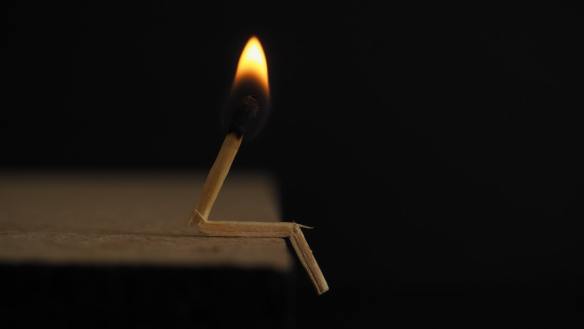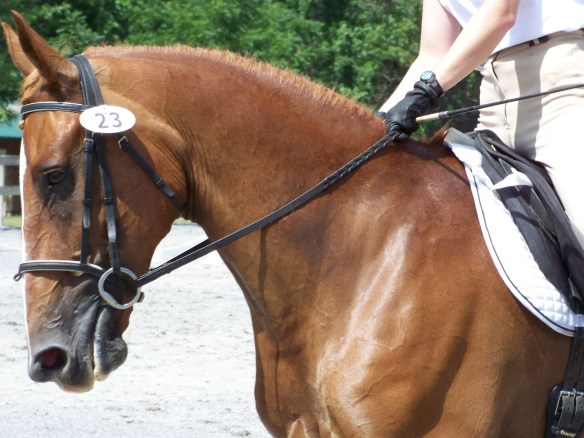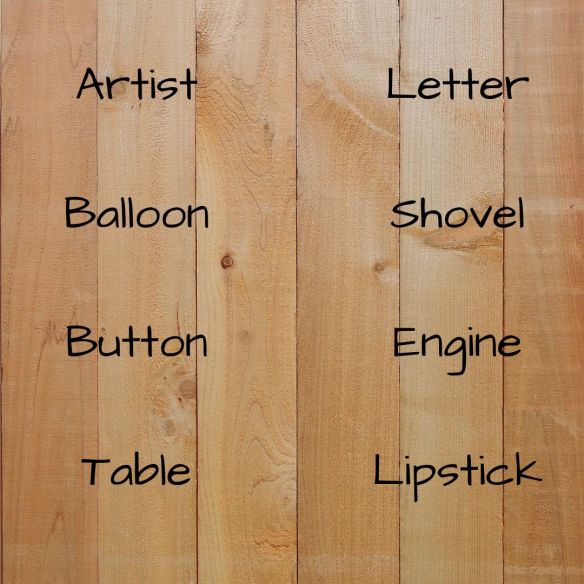 Let me start off by saying first of all, this is not meant to be a whiny post about how I wish I could quit my Evil Day Job and spend all my time writing books (although I do). Nor is it a contest to see whose job sucks the most. Since I’m writing this post, chances are I’ll think it’s mine, no matter what you say. 🙂
Let me start off by saying first of all, this is not meant to be a whiny post about how I wish I could quit my Evil Day Job and spend all my time writing books (although I do). Nor is it a contest to see whose job sucks the most. Since I’m writing this post, chances are I’ll think it’s mine, no matter what you say. 🙂
It’s a post about walking that fine line between being able to do your job to the best of your ability and burnout–and what to do about it.
See, I think most of us are closer to burnout than we think. It’s almost a given these days. Who hasn’t heard of the newly minted lawyer or the medical resident who is worked to the bone as some sort of rite of passage, putting in over a hundred hours a week into a job that demands nothing less because they think that’s how it’s done. That’s how you advance, become partner, a senior staffer, move up in management. That one day you’ll have the corner office and the healthy paycheck and you’ll be able to catch up on sleep or your kid’s recitals or afford that really awesome vacation.
Only it’s never enough, is it? Because (at least in the US), our workplaces demand more and more from us every year, expecting us to get more done with less support staff, improve the bottom line with fewer rewards. Accept a “promotion” that is largely a title for doing the work we’re already performing. Forcing senior, experienced employees out because they can hire two new graduates for what they have to pay the veteran employee. I recently overheard employees at my local grocery discussing how everyone’s hours have been slashed to just under full time so the national chain can avoid paying benefits like health insurance. At the same time, the company is replacing cashiers with automated systems for checkout, and eating the cost of shoplifting instead of keeping the live people on staff.
And we accept it because we’re scared we’ll be the next on the chopping block.
I live in a rural area where work is hard to come by. I have a mortgage and bills to pay, which as I age, increasingly includes medical bills. I’m lucky to have a FT job which contributes significantly to the household economy. I know this. And at the same time, I resent the degree to which the job owns me.
I resent putting in 10 hour days and having that never be enough. I resent the advent of mobile technology making you accessible to your employer 24/7 with demands you fix something or take care of something on what should be your down time. Twenty years ago, my employer would have paid my health insurance in full as a perk of the job. Now I’m expected to contribute $400/month out of my paycheck every month to retain coverage.
I resent coming home at the end of a long day irritable and fried, unable to interact pleasantly with those I love. By the time I get to the house, I’m too tired to make reasonable decisions about what to have for dinner, let alone find the energy to work on the current story. I don’t like the person I am right now. And yet I scarcely know how to change.
It’s a little thing, but one of the dictates of my workplace is that management gives me the next day’s assignments before I’m finished the current day’s work so I can review them in advance. They take this one step further in that I receive the workload for the day after my day off as well. The end result is my inbox is never empty. I never get to check off the day’s assignments as complete because there is always more sitting in my inbox.
Small wonder I dream about work as though I’ve never left, nightmares in which I look out the office window to see long lines of people waiting to be seen, like the lines outside Best Buy before a Black Friday sale. I never get to say I’m done for the day.
For a while now, I’ve been saying I’m on the edge of burnout, because in my head, “burned out” is a state of non-functionality, where you are incapable of doing your job, one step away from a nervous breakdown. Not willing to declare myself a charred cinder, I admit to being close just the same. And I have to admit there are days when the idea of a nervous breakdown sounds good if it means weeks spent in an asylum with nothing better to do than stare at the ceiling.
But I’m starting to think the gradient toward burnout is more subtle than you’d suspect. Whatever it is, I think I’m nearly there.
But if I am, then what? I still have bills to pay. I can’t just lie on the couch and read books all day, though I’d dearly love to give that a shot for a few weeks.
Which was why I was glad to stumble across Burnout:The Secret to Unlocking the Stress Cycle by Emily Nagoski, PhD and Amelia Nagoski, DMA. Various people on my social media feeds had been talking about it, and though I didn’t want to admit to actual burnout, I felt I was close enough to consider reading it.
I haven’t gotten very far into it yet, but I’m already of the opinion almost every woman I know could benefit from reading it. Not just those suffering from near burnout, either from work or their family lives, but also women struggling with PTSD, or relentless perfectionism, or just the demands that society seems to place on most of us. Men, too, with their struggle to meet society’s needs as well as those of their families, all while holding their emotions tightly in check.
According to the book, the biggest factors in burnout stem from never completing the cycle: as cavemen, if we were attacked by a saber-toothed tiger, we either survived the attack or we died. If we died, our stress was over. If we survived, there was a huge sense of relief and a celebration among our other cave-dwellers as we shared our story of our exciting near-miss. The adrenaline spiked, our muscles expended the energy in our survival, and then it was over.
In modern society, it is never over. The saber-toothed tigers are always with us, snapping at our heels, demanding we run faster, jump higher to escape–only we never do. We nap fitfully on the ledge outside our caves, always ready to leap up and run again.
Small wonder we struggle with weight issues here in the US. Our adrenal glands are on maximum overload all the time. And how do we handle stress? We eat. It’s a physiologic drive for survival because we always feel under threat.
Frankly, I’m not sure how I can change things given I have so little say so in how management tells me to do my job. But change I must. I can’t keep dozing on the edge of my ledge, longing for the day when I’ll be able to rest knowing I am in a saber-toothed tiger-free zone.
So while I take most self-help books with a grain of salt, this one is resonating with me.


 The truth is, regardless of
The truth is, regardless of  I’m in the process of final edits on my current project with a tight deadline, so I’ve been spending a lot of time with the manuscript lately. To the exclusion of just about everything else, I might add. No long walks with the dogs. No taking photographs on my rambles. Not riding the horse or swimming or anything. I sure as heck am not cleaning the house!
I’m in the process of final edits on my current project with a tight deadline, so I’ve been spending a lot of time with the manuscript lately. To the exclusion of just about everything else, I might add. No long walks with the dogs. No taking photographs on my rambles. Not riding the horse or swimming or anything. I sure as heck am not cleaning the house! I’m reminded of an article I once read about a bomb-sniffing dog who got burned out on the job because his handler used to take him to the golf course on the weekends and have him find missing golf balls. The handler mistakenly thought the dog was having fun doing this simple activity, but what he didn’t realize was the dog took finding golf balls as seriously as hunting out explosives, and the poor dog was effectively working seven days a week as a result.
I’m reminded of an article I once read about a bomb-sniffing dog who got burned out on the job because his handler used to take him to the golf course on the weekends and have him find missing golf balls. The handler mistakenly thought the dog was having fun doing this simple activity, but what he didn’t realize was the dog took finding golf balls as seriously as hunting out explosives, and the poor dog was effectively working seven days a week as a result.

 Except for a few short breaks, I’ve been at the keyboard for the last 12 hours now.
Except for a few short breaks, I’ve been at the keyboard for the last 12 hours now.
 Recently, due to circumstances beyond anyone’s control, I wound up with a story with an incomplete edit. Anyone in the writing business knows how hard it is to find a good editor at the best of times. When you’re in the middle of fording the river, it’s a terrible time to switch horses. But it couldn’t be helped.
Recently, due to circumstances beyond anyone’s control, I wound up with a story with an incomplete edit. Anyone in the writing business knows how hard it is to find a good editor at the best of times. When you’re in the middle of fording the river, it’s a terrible time to switch horses. But it couldn’t be helped. A good riding instructor assesses your skill level and does her best to make sure you understand the basics of horsemanship before putting you in a situation where you might get hurt. (What you do on your own time without her knowledge is on you) Good riding instructors are skilled at reading their students. They are firm because making mistakes could kill you. They know when someone needs encouragement and praise. They are quick to dole out correction when someone makes a bone-headed move. They know when to push a student to the next level and when to stop someone before they jeopardize themselves and the horses they ride. The best instructors can do this without demoralizing or belittling their students, all while pointing out bad habits and little errors that will keep you from winning in the show ring. They also realistically assess your level of talent, dedication, and the ability of your mount, and try not to over-face you. The goal is to keep you safe, and make you and your horse the best possible team you can be.
A good riding instructor assesses your skill level and does her best to make sure you understand the basics of horsemanship before putting you in a situation where you might get hurt. (What you do on your own time without her knowledge is on you) Good riding instructors are skilled at reading their students. They are firm because making mistakes could kill you. They know when someone needs encouragement and praise. They are quick to dole out correction when someone makes a bone-headed move. They know when to push a student to the next level and when to stop someone before they jeopardize themselves and the horses they ride. The best instructors can do this without demoralizing or belittling their students, all while pointing out bad habits and little errors that will keep you from winning in the show ring. They also realistically assess your level of talent, dedication, and the ability of your mount, and try not to over-face you. The goal is to keep you safe, and make you and your horse the best possible team you can be.


 Are you familiar with the website
Are you familiar with the website 
 Lately, I’ve been battling the fear that I’m becoming–I don’t want to say stupid. Let’s say cognitively impaired. That I’m losing my ability to process a reasonable amount of information. I find myself having difficulty reading a lengthy article, or wading through a basic legal document. Most books fail to hold my attention, and I lay them down never to pick them up again, something that never used to happen to me. When I do read, it’s usually on my Kindle, and I find myself skimming, in part because it’s just so easy to tap, tap, tap and turn the pages.
Lately, I’ve been battling the fear that I’m becoming–I don’t want to say stupid. Let’s say cognitively impaired. That I’m losing my ability to process a reasonable amount of information. I find myself having difficulty reading a lengthy article, or wading through a basic legal document. Most books fail to hold my attention, and I lay them down never to pick them up again, something that never used to happen to me. When I do read, it’s usually on my Kindle, and I find myself skimming, in part because it’s just so easy to tap, tap, tap and turn the pages.
